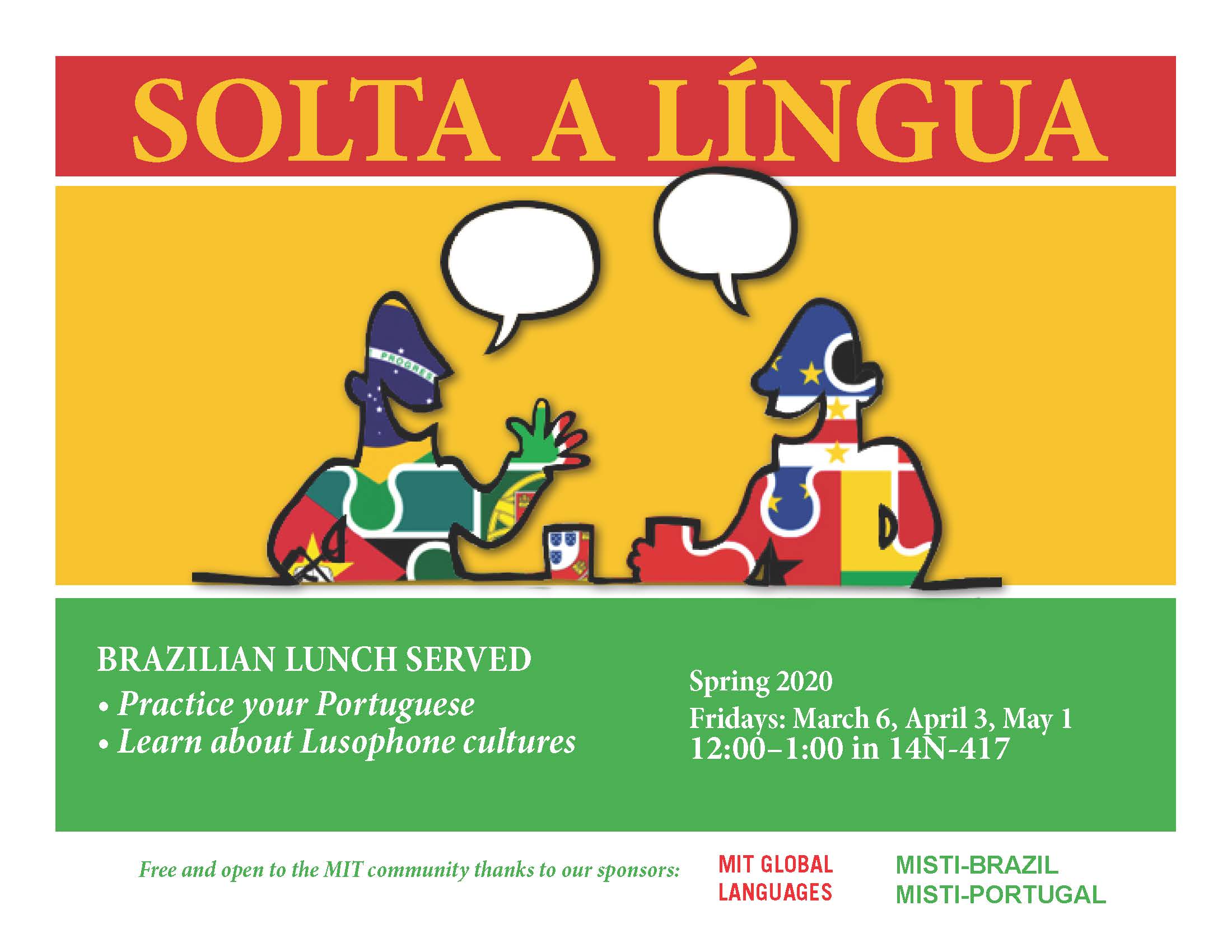Dig through our repository of past events, each complete with any materials from the presentation.
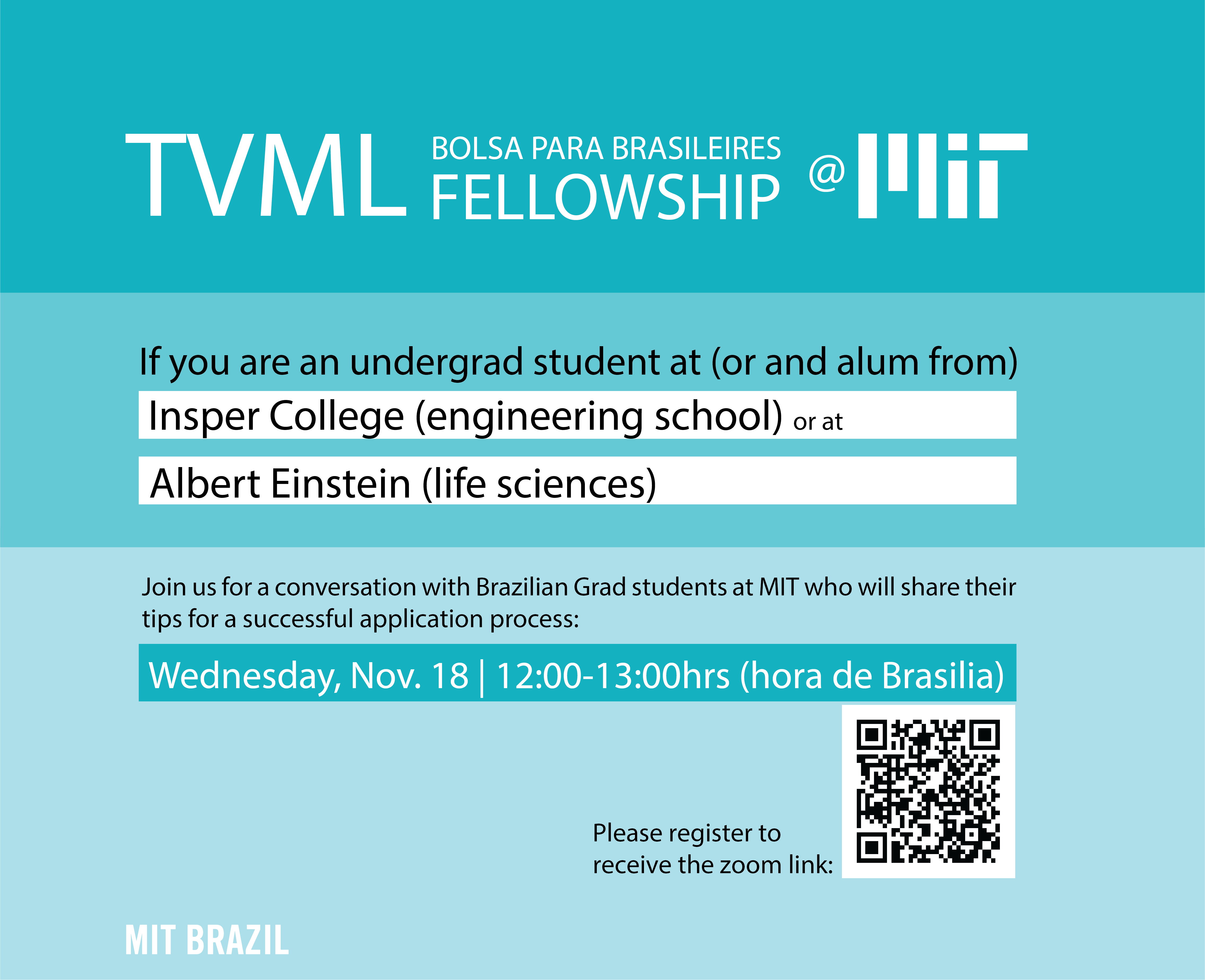
Assista o video sobre dicas de candidatura e bolsa TVML para brasileiros.

Brasilidade Series - The Amazon on your plate: an interactive food experience with Susan Gerber-Barata
The Amazon on your plate
Have you ever thought about eating some of the Amazon forest? Susan Gerber-Barata, a Swiss-Brazilianwoman who lives in the Amazon Region, suggests just that. In a fairly civilized Brazilian part of the Amazon there is a treasure to be found, food that is as tasty as it is unknown. Some foods like açai (the locals like to combine them with tapioca pearls and fish or shrimp) and cassava roots are known abroad.Others, like fish - if you wanted, you could eat a different fish every day for a whole year without ever repeating – or fruits that are still unknown. There are more than 200 edible fruits, some with flavors so strong that you "eat" their perfume right away. These local foods can jump straight from the indigenous pots onto our plates. Susan chose one example from this wealth of options: the cassava root. There are two types of cassava in the Amazon, one of them is deadly poisonous and is made edible by the ingenious indigenous tradition. Cassava roots become coarse-grained flour, something like the poor's daily bread, tapioca or a kind of rustic tapioca pearls. The liquid that results from the process is called "tucupi". The traditional dish "tacacá" is made from it. In this workshop, participants can engage with questions, or just sit back and enjoy the show and tell of stories about unfamiliar foods from the Amazon.
Please click on the link to read some of the books by Susan Gerber-Barata: Amazon on the plate
Click HERE to watch the video!
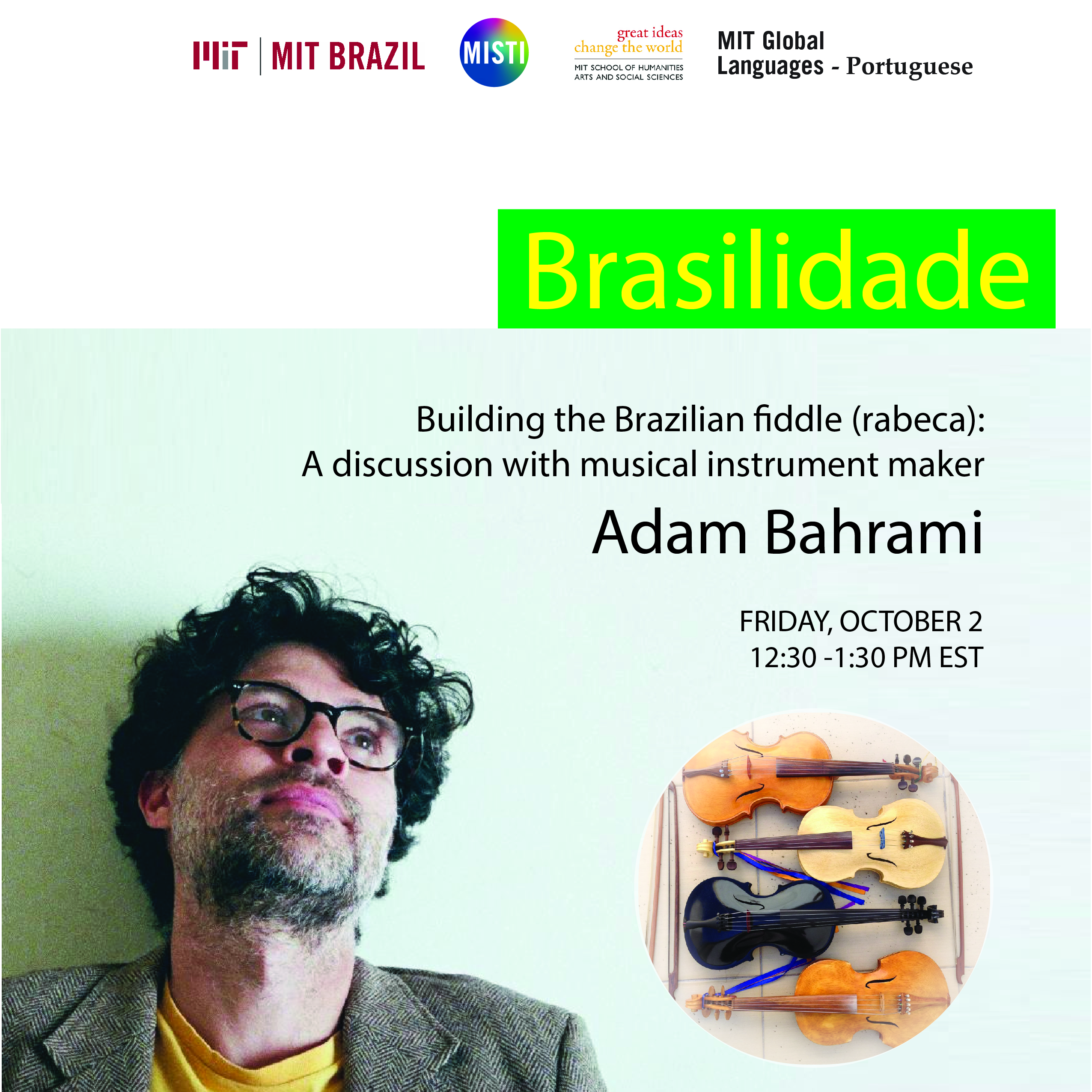
Portuguese at MIT & MISTI MIT-Brazil
Brasilidade Series: Building the Brazilian fiddle (rabeca): a discussion with musical instrument maker Adam Bahrami
The rabeca is as old as Brazil— a fiddle likely of European origin, predating the modern violin, this musical instrument is captivating for it’s haunting sound, the roles it plays in leading a wide variety of cultural traditions, including forró, cavalo marinho, fandango caiçara, and música caipira, and the ingenuity of it’s makers who frequently use simple tools in rural settings to great creative end. In this presentation/workshop, stringed-instrument maker Adam Bahrami will discuss his trajectory as a rabeca builder embedded in the dynamic music scene of São Paulo, where he founded the workshop Rabeca São Paulo in 2016. Bringing his background in the sciences to the building of a traditional instrument, Adam developed a successful 5-string model and created the first commercially-available string sets for the instrument. At the same time, these activities highlight complexities and tensions of working in the arena of culture with diverse stake-holders, raising questions about the role and limits of innovation in tradition. In this workshop, participants are welcome to engage with questions and discussion according to their interests, or just sit back and learn about the rabeca in Brazilian music!
Click Here to watch the video!
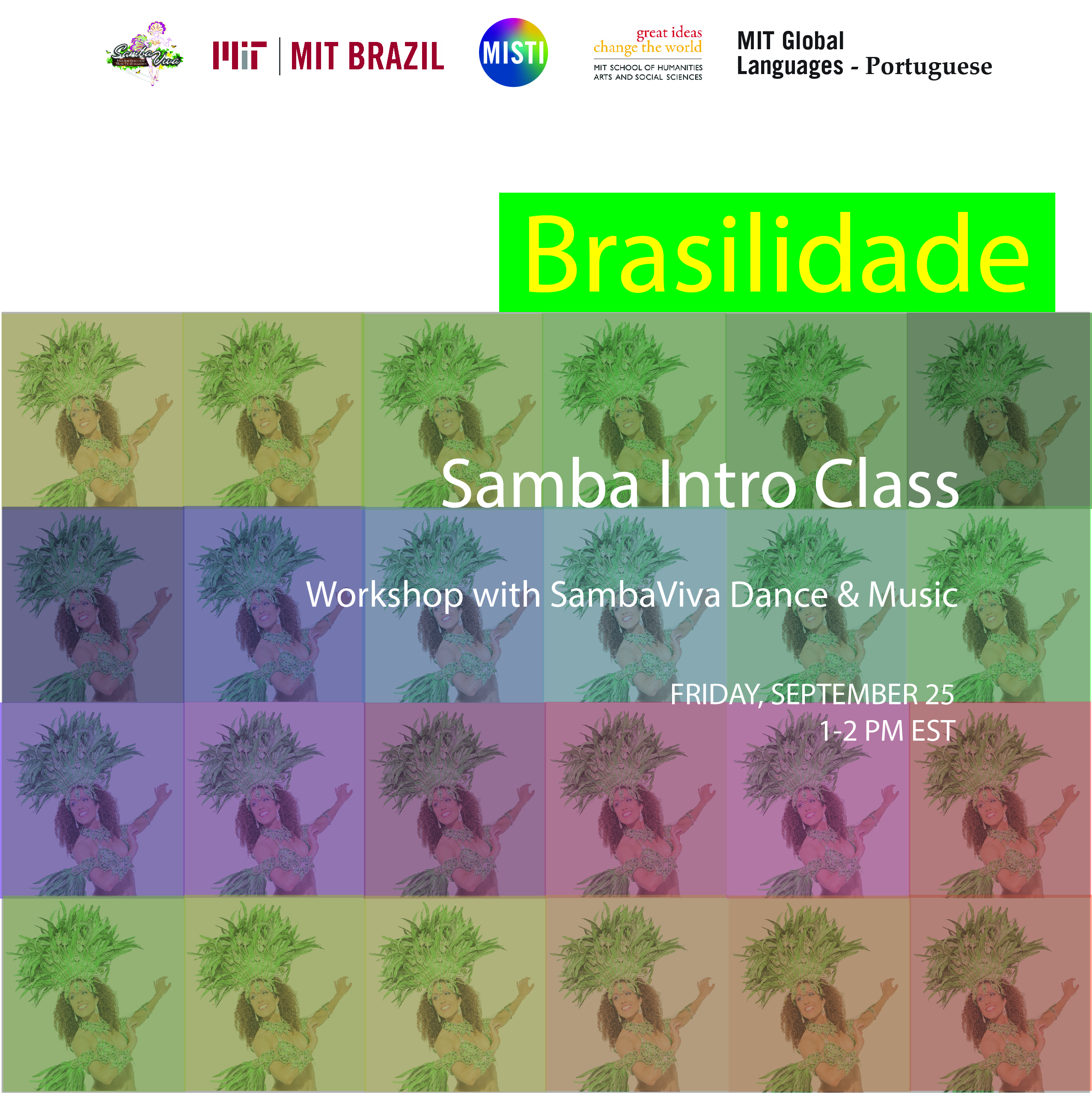
Portuguese at MIT & MISTI MIT-Brazil
Brasilidade Series kick-off: SambaViva Intro to Samba workshop
In this introductory class, Rachel from SambaViva will touch on the history and cultural significance of samba. Students will be introduced to the samba rhythm and some of the instruments that make up the sound, and learn the basic step. Students should come prepared to move, have fun and take a musical journey! No previous experience is necessary.
“SambaViva is an internationally recognized dance and music ensemble dedicated to authentically presenting and promoting Brazilian culture. With an energy that is vivacious, striking, and engaging, SambaViva brings a taste of Brazil to any occasion. SambaViva has been offering samba and Afro-Brazilian classes for over 10 years. Classes are a cornerstone of our mission to share our enthusiasm for Brazil with people of all ages, genders, and abilities. Rachel will lead this workshop. She discovered samba in 2001 and her life was changed forever. Learning samba ignited a passion for dance and for Brazil’s rich culture and exuberant energy. Rachel progressed from learning to performing to teaching samba and other Afro-Brazilian styles while studying at the Brazilian Cultural Center of New England. She performed with the Center’s percussion group, Samba Tremeterra, for ten years. In addition to her training at the BCCNE, Rachel has studied samba no pé, samba de gafieira, afoxé, axé, and other Brazilian dances with teachers based in New York and all over Brazil.”
Why samba now? Because “the same foot that dances samba, if necessary will join the fight, capoeira.” “O mesmo pé que dança um samba, se preciso vai à luta, capoeira” (Lyrics from Viola Enluarada, Marcos Valle and Milton Nascimento)
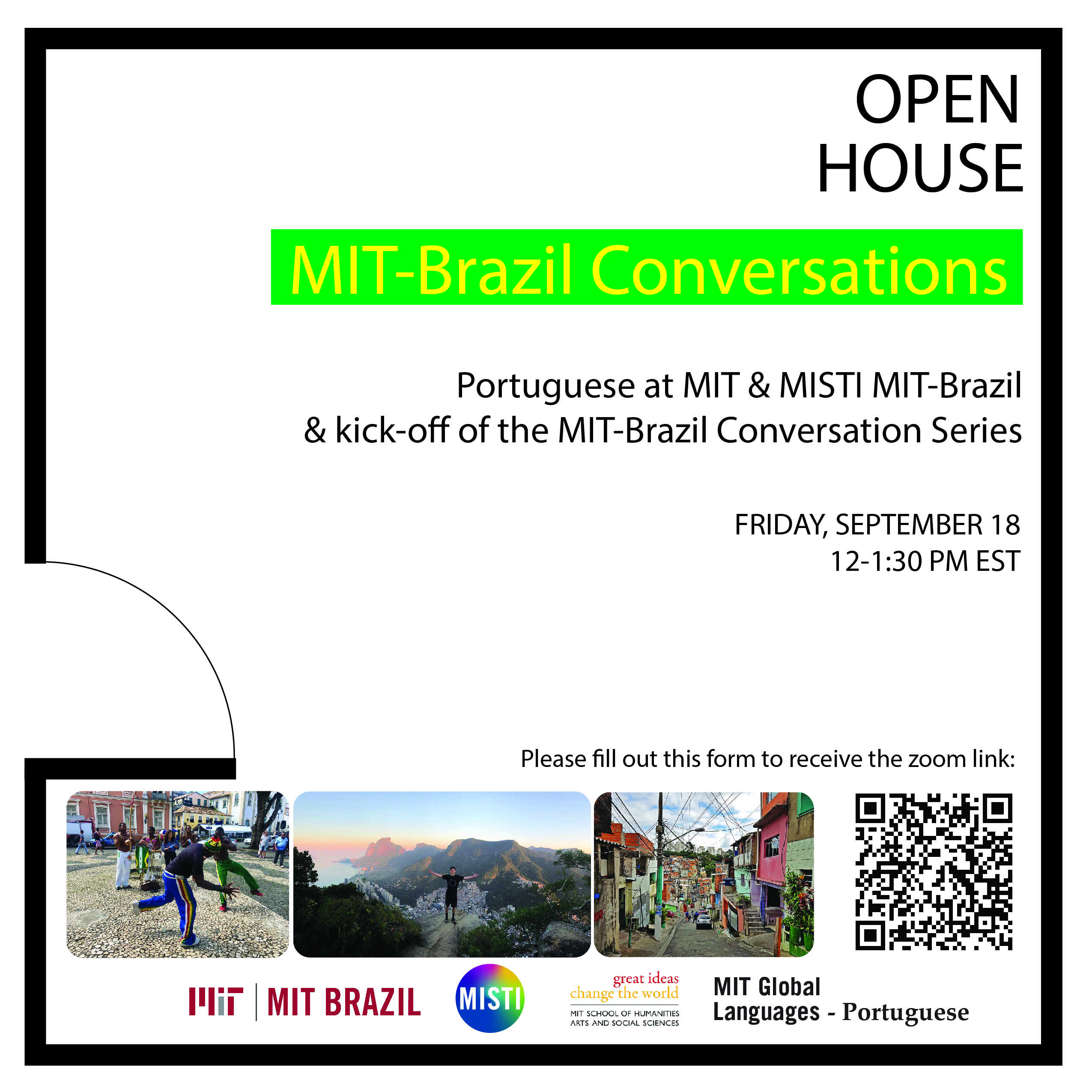
Open House Portuguese at MIT/ MISTI MIT-Brazil & kick-off of the MIT-Brazil Conversation Series. Click HERE to watch the event.
Brazil on Campus Program
How does Brasil on Campus work? Click HERE to find out or send an email to the MIT Lemann Campus Ambassador Allan Costa <allanc@mit.edu>
Please click HERE to the Opt-in Form for the Brasil on Campus Program.
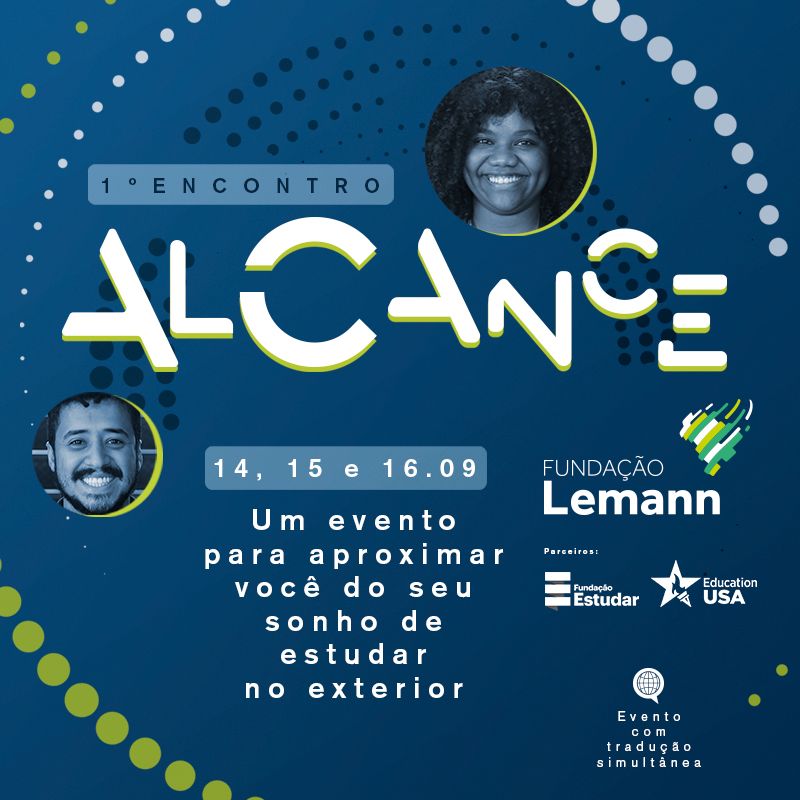
No evento Encontro Alcance, que ocorreu de 14 a 16 de setembro, representantes de universidades e ex-alunos reuniram-se para derrubar barreiras e aproximar brasileiros do sonho de fazer pós-graduação no exterior.
Para mais informação acesse o site da Fundação Lemann
Contatos dos Representantes de Admissão do MIT:
- e-mail: alcance@mit.edu
- site: https://gradadmissions.mit.edu/
- inscrição da newsletter: https://news.mit.edu/
- MIT Facts: http://web.mit.edu/facts/
- guia de candidatura em português: https://docs.google.com/document/d/1I5SxKUa3vX9aKoiLdM6MLn9PQqvFgES71h60PqrdcTo/edit?usp=sharing

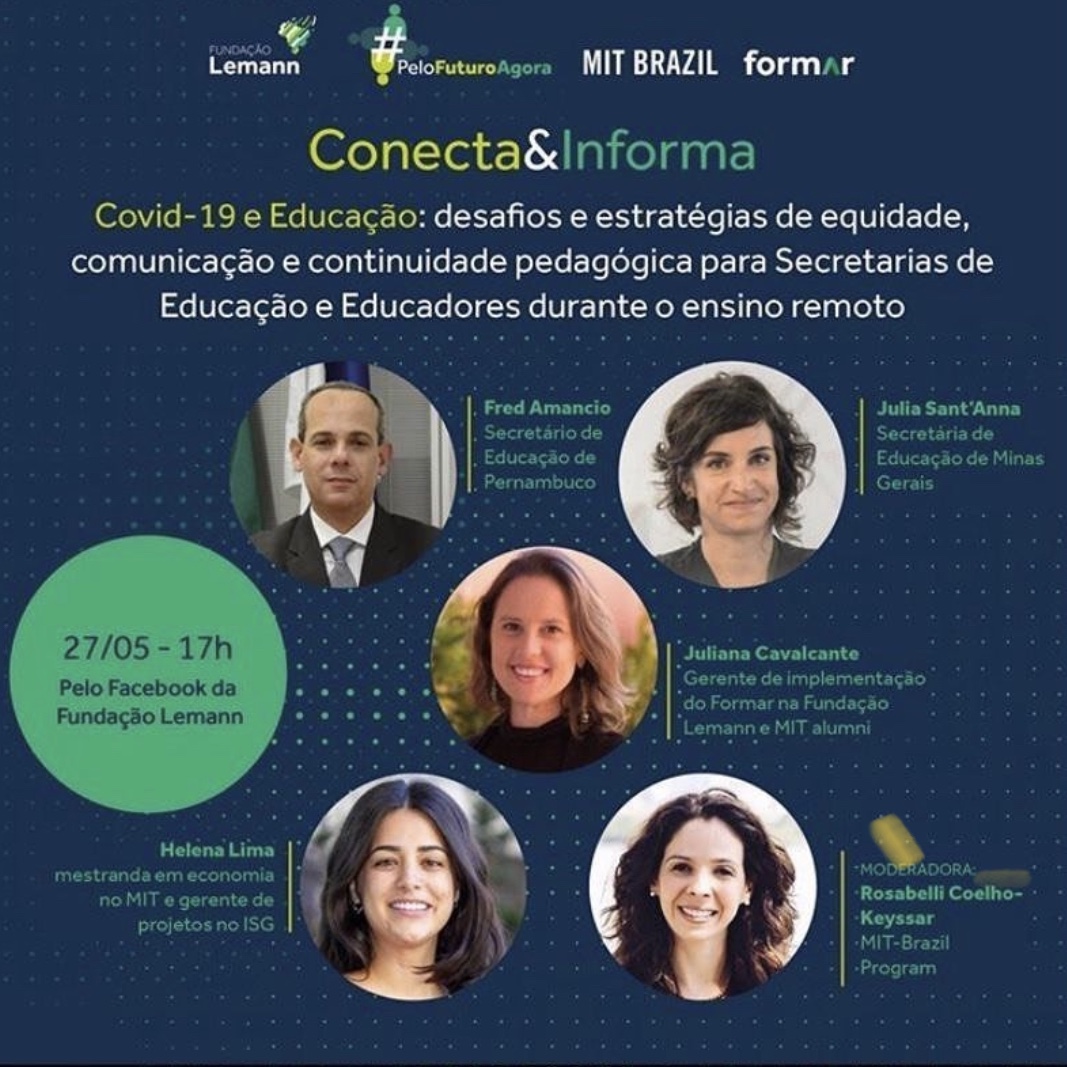
Justin Reich, professor do MIT (Instituto de Tecnologia de Massachusetts) e diretor do Teaching Systems Labs, conduziu uma pesquisa com as 50 secretarias de educação dos Estados Unidos e, a partir disso, sistematizou todo aprendizado em um relatório. Em seu trabalho, Justin reúne os principais achados sobre esse período de ensino remoto e separa os aprendizados em 3 principais áreas: equidade, continuidade pedagógica e comunicação.
O MIT Brazil traduziu o documento para português e você pode baixá-lo aqui.
Aproveite e acesse o Webinar Conecta & Informa, bate-papo organizado para o lançamento do relatório em português e para discutir sobre semelhanças e diferenças com os desafios do Brasil.
Os participantes dessa conversa são Fred Amancio (Secretário de Educação de Pernambuco), Julia Sant’Anna (Secretária de Educação de Minas Gerais), Juliana Cavalcante (gerente de implementação do Formar na Fundação Lemann e MIT alumni) e Helena Lima (mestranda em economia no MIT e gerente de projetos no ISG). Rosabelli Coelho-Keyssar, do MIT-Brazil Program, é a moderadora da conversa.

